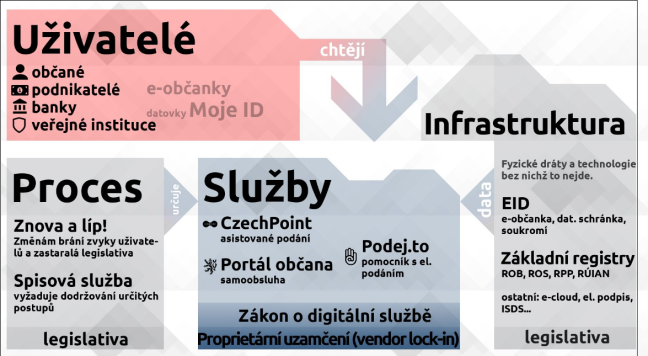A law being prepared by the Czech Republic on eGovernment services (‘Právo na Digitální Služby’ or ‘Right to Digital Service’) will establish technological neutrality for companies and citizens. This means they may not be forced to use any particular software because of technology choices made by public services, Ondřej Profant, Chairman of the Parliamentary Subcommittee on eGovernment, told the European Commission’s Open Source Observatory.
Many eGovernment services and related ICT services are locked in by proprietary software vendors, and most of these services do not use open web-standards, the Member of Parliament said. For example, some current eGovernment websites still require Silverlight - an outdated proprietary framework for multimedia. “That would no longer be allowed with this new law,” the MP said.
Some eGovernment services are already technology-neutral, Mr Profant said. Examples include the Czech Republic’s Data Boxes and the central data registry for citizens’ personal information. “These work just fine and can be accessed from any computer system,” the MP said.
 Modernisation
Modernisation

Mr Profant, who represents the Czech Pirate Party, talked about Digitální Česko at the Linux Days conference in Prague in October. According to the MP the larger IT vendors active in the country have succeeded in locking public services into particular and proprietary document-workflow systems, databases, web servers and operating systems.
Mr Profant wants to encourage public services to use interoperable, technologically neutral open ICT standards. “Interoperability benefits all of us,” he said. He also wants the Czech Republic to take a cue from government modernisation and government digitalisation policies in other countries.
The Právo na Digitální Služby draft will also give companies and citizens the right to use ICT technology to communicate with authorities. The law will also establish the “once-only” principle: a public service shall not require citizens or companies to submit data that is already held by another public service. In addition, the law will expand the options for accessing government information as open data.
The Czech parliament will discuss the new law in January.

